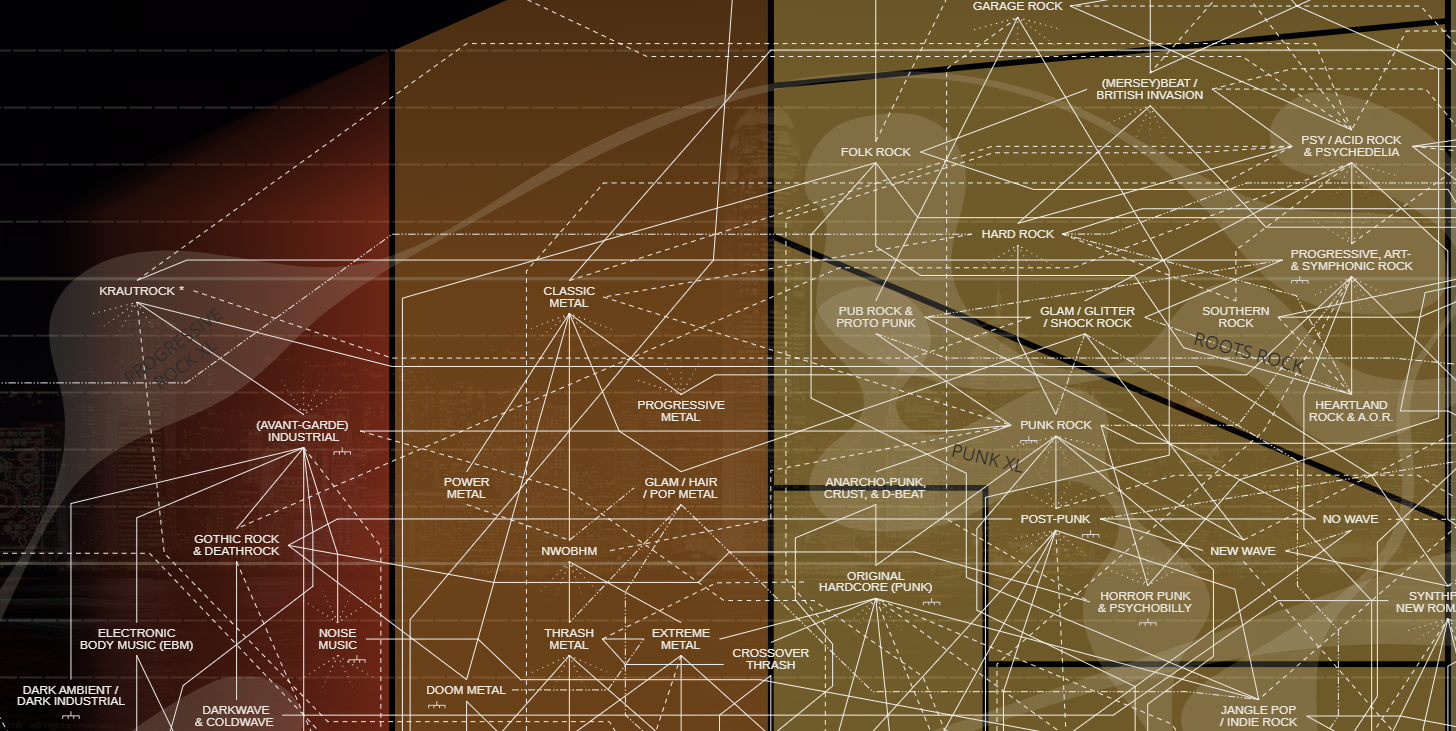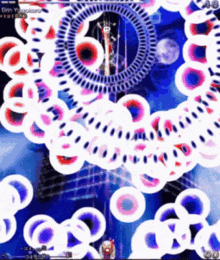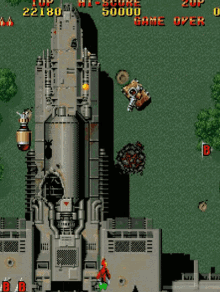Blaugust 2 - Your Roguelikes Aren't Roguelikes... Sort Of.
Aug 15, 2025
I love taunting people with forthcoming blog posts that will never actually come... but sometimes it has me thinking. And then the blogpost comes.
The Problem:

Don't worry! I'm not gatekeeping your roguelikes, my roguelikes aren't roguelikes either because video game genre is meaningless. Do I have your attention? I hope that sounds as bold as I think it does. Here's the deal, we (humans... and especially nerds) LOVE to categorize things. Like seriously, we're kind of pathological about it, have you ever looked at music genres like on musicmap? It's nuts.

Also I love that I happened to grab a screenshot that included d-beat while I'm listening to some. It's not for everyone but it fits the internal cacophony in my head at all times.
Anyways back on topic - we categorize things pathologically and I'd argue for cinema and literature that mostly works. You can view both of those through the lens of the author/auteur as well but when it comes to comparing and contrasting films/books or finding things similar to what you already like then the way we use genre works really well. It falls apart a bit with music because we hybridize things so aggressively that you end up in the weird realm of microgenres and that's not exactly helpful. For example: I like a lot of witch house but what I'm really saying there is I like synthwave with an occult aesthetic, both visually and aurally. It's so niche I don't think it's particularly useful as a point of comparison, especially since at least part of that microgenre is visually aesthetic in nature which is weird to include in music. I don't like Judas Priest because of the leather daddy/biker aesthetic, I like them because they're ass kicking metal.
So how does that relate to genre in video games? When we talk about game genre there are two things that work against it. The first is that a lot of genre names/descriptions rely on historical context to make sense and without that they lose a lot of their intended meaning: Adventure, Simulation, RPG are categories that have all become at least somewhat meaningless. Bullethell has a fairly specific (though like all video game genres largely vibes based) meaning but gets applied to most STG/Shmups indiscriminately.
Bullet Hell:

not Bullet Hell:

But you can see, they're the same kind of game either way. You control a small character on a field with enemies that are exchanging fire with you. You're dodging bullets. You have a score. They have bangin' soundtracks. But vibes based... yeah one of those feels like being in hell, the other not so much.
The second thing that works against video game genres being more meaningful is that they're almost exclusively mechanical in nature, there are a few that are more related to the experience you'll have like MOBA, Survival Horror, Walking Sim, or Bullet Hell, but most are purely mechanical:
-
Platformer
You're jumping from platform to platform. Mostly. Not always jumping, but it doesn't tell you about theme, visuals, story, difficulty even. Just that you're jumping.
-
RPG
Everything is an RPG, have you noticed that? That's because it meant "like a table top RPG (D&D)". So it's short hand for "has character progression and advancement." which generally means stats and leveling. It describes the game having some sort of character advancement but that's really it.
-
Roguelike*
The asterisk is because this has two distinct meanings but we'll go with the popular one: It means the game has run based gameplay which is sometimes called permadeath but is closer to arcade like game loops than true permadeath, and high randomness and/or procedural generation. Again - nothing about the game other than having those two features.
- Roguelite defines the above to make a more meaningful difference between the two kinds of roguelikes and to imply that metaprogression (unlocks acquired after finishing a run) is a part of it. But this is still mechanical only in nature AND runs afoul of needing to know what the hell a traditional roguelike is to parse out how it's being "lite"er.
-
FPS
Tells you that it has a first person view point and you're shooting (normally) things. I'd argue Doom clones, COD clones, and Halo clones are effectively all different genres due to how different they feel to play while using the same limited vocabulary to describe them.
-
Metroidvania
It's an action (meaning reaction time is important) platformer (has platforms and (probably) jumping) that emphasizes large maps where you acquire upgrades to backtrack and access previously seen but unreachable areas. Literally the only thing this is doing beyond "action platformer" is describing the game world traversal loop. I like Castlevania: Symphony of the Night and Super Metroid, I don't like many other games described this way, and it's because that "genre" doesn't tell you nearly enough about the game to matter.
Does this matter?
It's complicated. When it comes to playing games and getting enjoyment from them the answer is a resounding no. If you also get enjoyment from talking about and discussing them... then yeah it does matter. It can be really hard to talk about games in a coherent way without devolving to genre soup descriptions such as: It's a first person horror co op narrative survival puzzle game with some RPG mechanics (bonus points if you can tell me what game I'm describing, its popular) or getting into discussions that are tangential to the point along the lines of "what is a metroidvania really, do zelda and megaman count?" (no, but they're similar). If you're a librarian, a critic, or a researcher then I think it's actually a huge problem as this analysis shows. And if you, like me, are concerned about the discoverability issues with indie games then it's also huge because how the hell do I find more games like Noita without getting recommended a metric ton of generic "roguelikes" or "metroidvanias". That's a trick question btw, there are no games like Noita. Yet.
Is there a solution?
Nope. The analysis I linked earlier proposes some solutions for the information studies realm that might work, including decomposing all elements of the game into a set of characteristics. But for fans, consumers, critics I don't think that's particularly helpful or useful. We're stuck in the Venn diagram of game genres being too granular like musical microgenres and too vague and ill-defined like my boss (or your mom) to be that useful. We're going to stay here too since I don't think "genre" is the best way to attack this problem. I don't know what would be either. I would suggest trying to be more descriptive of games rather than attempt to use genre shorthand to describe them but I know I won't keep that up, I doubt anyone else would either. It would be utterly exhausting. But I think it's worth thinking about next time you describe something as a roguelike-soulslike-vania what you're really trying to say and what other people are hearing.
TL;DR:
I defeated the menace of video game genre vagueness forever. Totally. This is my fourth time writing this and this is the most succinct it's been so far. I kept having to resist the urge to dive into genre descriptions and to not rant like this kotaku article. Got a comment? Email me at chaosgoat@omg.lol or send a webmention.